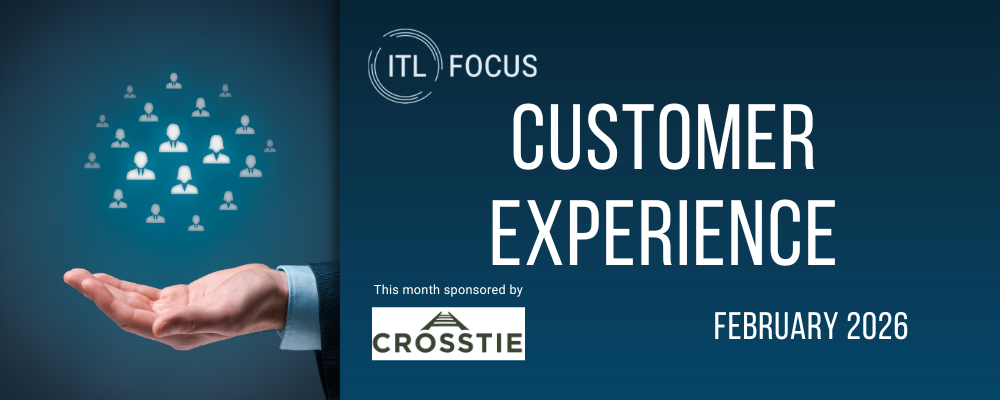When we say “it’s personal,” we mean it in numerous but equally important ways.
The future of insurance is personal in the sense that its protection products and services of all types – life, health, accident, property/casualty and other lines of business not yet invented – will increasingly have to be customized and dynamic to meet the needs of each individual customer personally, depending on their constantly changing preferences and life circumstances. This is what I mean by “hyper-personal.”
The future of insurance is also personal because customers are human beings, and these products are typically most needed at times of great personal stress and loss. The ability to understand and share the feelings of customers at these critical times, referred to as empathy, will be more critical and more highly valued than ever in a world where individuality and personalization may be diminished.
Customer Experience and Risk
The term “customer experience” is often used in a collective sense and measured at a group level, but it’s critical to understand that any such metrics represent the sum total of each and every customer’s personal satisfaction during each and every exposure and interaction with an insurer – not just a single episode at a moment of need. Understanding and measuring customer experience in a hyper-personal way will require innovative but non-intrusive connectivity. Customer engagement will have to become continuous and relevant – what could be more personal than that?
Risk management is quickly evolving to become risk avoidance. This includes personal auto, home, life and health. Telematics-enabled auto insurance programs are evolving to focus on driver safety and behavior modification – obviously extremely personal and policyholder-specific.
See also: COVID, and How to Pivot to Innovation
COVID-19
COVID-19 has forced most insurance professionals to work from home. Insurance carriers quickly realized that the millions of square feet of office buildings they occupied and paid for on a 24x7 basis are no longer necessary, not even post-pandemic. Work from home is expected to become permanent, or at least partially permanent, whether by employee choice or by necessity. This will permanently alter the personal living and working habits of most people. In addition, COVID-19 forced carriers to redouble their investment in a range of technologies to operate more efficiently without on-site staff. Some of these advances will no doubt result in furloughs and layoffs, some of which will even survive the pandemic. Allstate Insurance recently announced that almost 4,000 of its staff are to be laid off, representing 8% of its workforce. That is highly personal to those people and their families.
ESG, Diversity and Inclusion
Environmental, social and governance (ESG) criteria typically refers to the consideration of these three factors by investors when choosing which investments to make. Increasingly, insurance corporate boards and management, encouraged by investors and public opinion, are also focusing on sustainability and ethics and moving beyond traditional staffing and recruitment efforts to take meaningful steps toward achieving more diverse and inclusive employee profiles, especially in senior leadership roles. For the beneficiaries of all of these practices, and others affected, this shift will be personal for all parties.
Automation, Digitization and Re-Skilling and Up-Skilling
Operationally intensive industries – foremost among these insurance – are experiencing a wave of automation and digitization, accelerated by the COVID-19 pandemic. which will have a major impact on the skills their employees will need and on these companies' ability to remain relevant and competitive. Technology solutions are enabling machines to perform many of these tasks that formerly required people. In the near future, nearly every job will change, many significantly, and a large majority of current industry employees will need to develop new skills. Not only will that change affect a large percentage of insurance workers personally, but most organizations are not ready to address it. The future of work will require two types of changes across the workforce: upskilling, in which staff gain new skills to help in their current roles, and reskilling, in which staff need the capabilities to take on different or entirely new roles.
Privacy, Confidentiality and PII
Americans have long taken for granted and protected their privacy and resisted sharing information outside of trusted circles, much less willingly having it collected, stored, used and sold by companies with which they have, or even do not have, a relationship. Gradually, with the rise in the pervasive acceptance and use of social media and connected mobile and digital technologies, more personal data is being shared more frequently. This has brought focus to what is known as personally identifiable information (PII), meaning information that can be used to identify, contact or locate an individual, either alone or combined with other easily accessible sources. Government regulations have emerged. The E.U.'s General Data Protection Regulation (GDPR) requires companies to protect the privacy of their E.U. customers and keep PII safe. Earlier this year, the landmark California Consumer Privacy Act of 2018 (CCPA) came into effect, giving consumers more control over the personal information that businesses collect about them.
See also: COVID and ‘the Great Reset’
The future of insurance is personal, which I believe will make it more relevant and valuable than ever before in its history.
This theme will be explored in depth with industry CEOs and C-level speakers during The Future of Insurance USA from Reuters Insurance Events online, Nov. 16–18, 2020.






